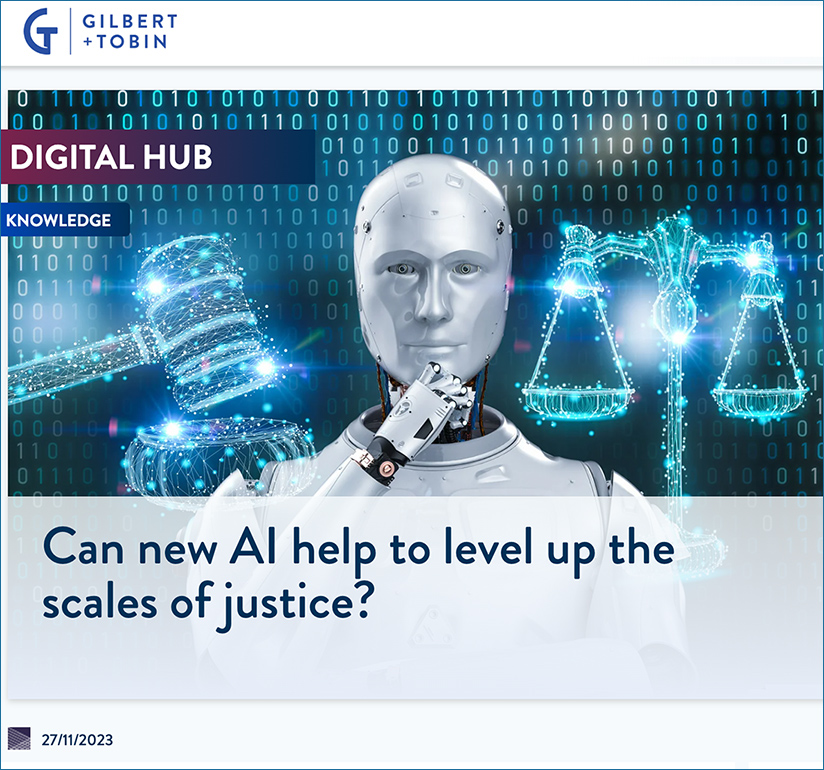Can new AI help to level up the scales of justice? — from gtlaw.com.au by Peter Waters, Jason Oliver, and David Baddeley
So asks a recent study by two academics from Stanford Law School, David Freeman Engstrom and Nora Freeman Engstrom, on the potential impact of AI on the civil litigation landscape in the US.
It is against this landscape, the study observes, that champions of legal tech have suggested that there is an opportunity for legal tech to “democratise” litigation and put litigation’s “haves” and “have nots” on a more equal footing, by arming smaller firms and sole practitioners with the tools necessary to do battle against their better resourced opponents, and cutting the cost of legal services, putting lawyers within reach of a wider swathe of people.
But is this a real opportunity, and will AI be key to its realisation?
…
However, while AI may reduce the justice gap between the “haves” and “have-nots” of litigation, it could also exacerbate existing inequalities.
From DSC:
While this article approaches things from the lawyer’s viewpoint, I’d like to see this question and the use of AI from the common man’s/woman’s viewpoint. Why? In order to provide FAR GREATER access to justice (#A2J) for those who can’t afford a lawyer as they head into the civil law courtrooms.
- Should I take my case to court? Do I have a chance to win this case? If so, how?
- What forms do I need to complete if I’m going to go to court?
- When and how do I address the judge?
- What does my landlord have to do?
- How do I prevent myself from falling into a debt-collection mess and/or what options do I have to get out of this mess?
- Are there any lawyers in my area who would take my case on a pro bono basis?
- …and judges and lawyers — as well as former litigants — could add many more questions (and answers) to this list
Bottom line:
It is my hope that technology can help increase access to justice.
Also relevant/see:
Virtual Justice? Exploring AI’s impact on legal accessibility — from nortonrosefulbright.com by Chris Owen and Mary-Frances Murphy
Excerpt (emphasis DSC):
A number of products are already under development, or have been launched. One example is a project that Norton Rose Fulbright is working on, together with not-for-profit legal service Justice Connect. The scope is to develop an automated natural language processing AI model that seeks to interpret the ‘everyday’ language used by clients in order to identify the client’s legal issues and correctly diagnose their legal problem. This tool is aimed at addressing the struggles that individuals often face in deciphering legal jargon and understanding the nature of their legal issue and the type of lawyer, or legal support, they need to resolve that problem.









